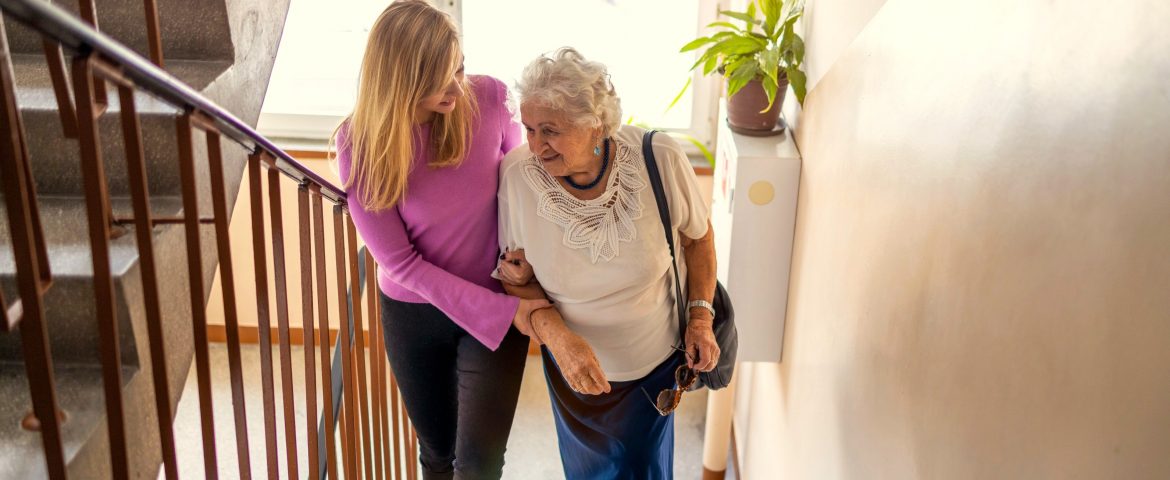By Riley Sweet, MS
By providing comfort, familiarity, mobility, and a friend, companion care may be the right option for you and your family.
For my grandma, her care companion, Corey, came to visit her two times a week, it was the time she looked forward to the most, I knew this because my grandma would talk about her time with Corey whenever my mom and I came to visit. She mentioned every card game, the popcorn popped, and how her and her care companion would sit around the dining room table just to get a few jokes in.
Having a care companion is what got my grandma out of bed after experiencing a period of severe depression following the death of my grandpa.
In fact, it seemed like Corey touched each of our lives. Her afternoon visits two to three times a week not only nurtured a cherished friendship between her and my grandma, but also provided relief for my aunt, who had been my grandma’s fulltime caregiver.
What is companion care?
 Companion care is when an individual visits, socializes, provides emotional support, and companionship for an older adult or adults. Companion care can also include “odds and ends” services like transportation, grocery shopping, light housework, and more.
Companion care is when an individual visits, socializes, provides emotional support, and companionship for an older adult or adults. Companion care can also include “odds and ends” services like transportation, grocery shopping, light housework, and more.
How can companion care improve health?
There are many ways in which companion care can help older adults live healthier. Take nutrition, for example. Without access to regular transportation, some isolated seniors find themselves eating poorly simply because they have no way to access fresh, nutritional meals. With a regular companion care visitor, your loved one can get to the grocery store and help to prepare nutritious home-cooked meals.
Nutrition aside, companion care also provides the obvious: companionship.
The National Poll on Healthy Aging reports that “chronic loneliness may shorten life expectancy even more than being overweight or sedentary, and just as much as smoking.”
Simply having a companion and friend improves health on its own, but this is especially true for those who already experience health issues. In a poll of older adults with existing health concerns, mental health concerns were most closely associated with feeling lonely.
A companion caretaker lessens these outcomes by being a consistent source of social interaction and providing transportation opportunities so lonely seniors can get out of the house and back able to participate in activities they enjoy.
If you or a loved one struggles with isolation or loneliness as an older adult, consider looking into companion care. If you’re a Priority Health Medicare member, reference your benefits to see if care through Papa, a companion care service, is available as part of your plan. Their services provide a few hours a month to assist with the most important needs of you and your loved one. You can also call the number on the back of your member ID card to ask if you qualify for this care. If you are not a Priority Health member ask your Medicare plan provider about available companion care options.


